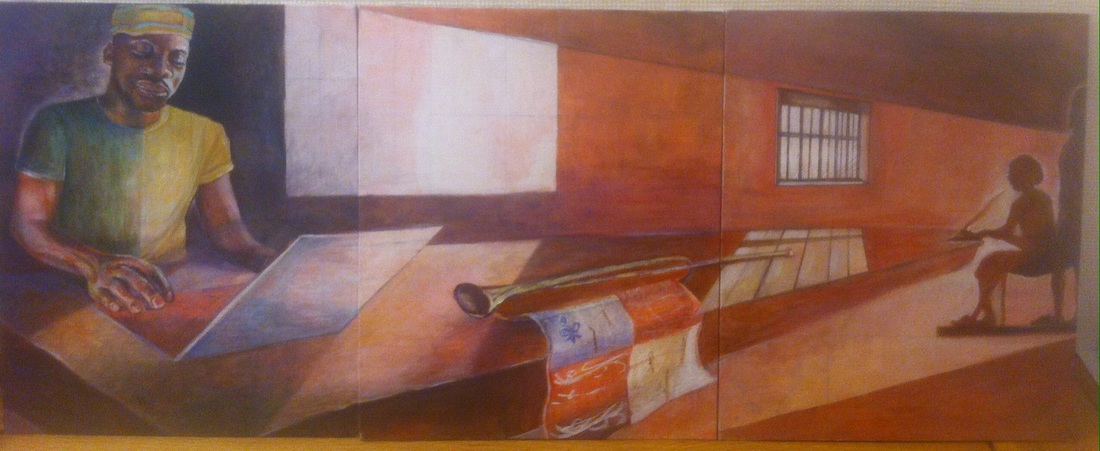The event has since been described as ‘exciting, informative, culturally enriching’, ‘impressively attended, very buoyant and well-informed’. It has also been praised for its ‘sense of warmth and informality within academic discourses’ and ‘clear rigour without elitism’.
Attendees included pioneers of the subject who have been writing about Black British History for more than 30 years, young academics forging new paths, teachers, students, artist Ebun Culwin, and representatives of public bodies such as English Heritage and the Heritage Lottery Fund.
The workshop was the first in a series designed to develop the conversation about Black British History. It was organised by Michael Ohajuru and myself at the invitation of Professor Philip Murphy, director of the Institute of Commonwealth Studies and Deputy Dean of SAS. Future events are planned for 2015 in venues outside London during February and May half terms, and we aim to establish a national network of Black British History researchers and communicators.
The day showcased new directions in research, exciting developments in the archives, and innovative approaches to spreading the word. You can see the programme for the day here. The fact that we had over 30 paper proposals for the nine slots available to present at the workshop, shows the strength and depth of research in this field.
Why do we need to have this conversation now? It is thirty years since Peter Fryer’s Staying Power charted the history of Black People in Britain, taking the story back to Roman times with the paradigm-shifting opening line: ‘There were Africans in Britain before the English came here’. Yet, despite his work, and that of the many scholars that have stood on his shoulders, the present immigration debate seems to be conducted by people entirely ignorant of this history.
We have just come to the end of another Black History Month– the twenty-eight since it was established here in 1987. But it’s increasingly hard to spot the History in Black History Month. And the history we do get is often limited to the last century, or dominated by American narratives of slavery and civil rights. We know about the bus boycott in Montgomery, Alabama, but not the one in Bristol. Samuel King powerfully skewered the inadequacy of the Black History currently on offer in the classroom in his performance of What I Wasn’t Taught in School during the lunch break.
The conversation on 30 October took place in the context of growing popular interest in the subject, from Hollywood’s Belle (2014) to the large crowds that gathered to celebrate the launch of the Black Cultural Archives when it opened in Brixton in July. The initiatives presented on the day – from innovative research and digging in the archives, to efforts to place this history on our screens and in our classrooms – were inspiring. Even more so was the spirit of collaboration and co-production exemplified by projects such as Abdul Mohamud and Robin Whitburn’s Justice2History and Milton Brown and Paul Ward’s work in Huddersfield.
There was a wealth of interest and knowledge among those who attended, and many important questions and areas to explore further were identified. We hope to build on these as we continue the conversation in the future.
The whole day was filmed, and the videos will appear here in due course. Anyone interested in joining our national network of Black British History researchers and communicators should sign up to the Database, and continue the Conversation on Twitter @BlackBritHist #WHBBH and Facebook Black British History.
This blog originally appeared on SAS Blogs (School of Advanced Study, University of London) on 18 November 2014.

 RSS Feed
RSS Feed
